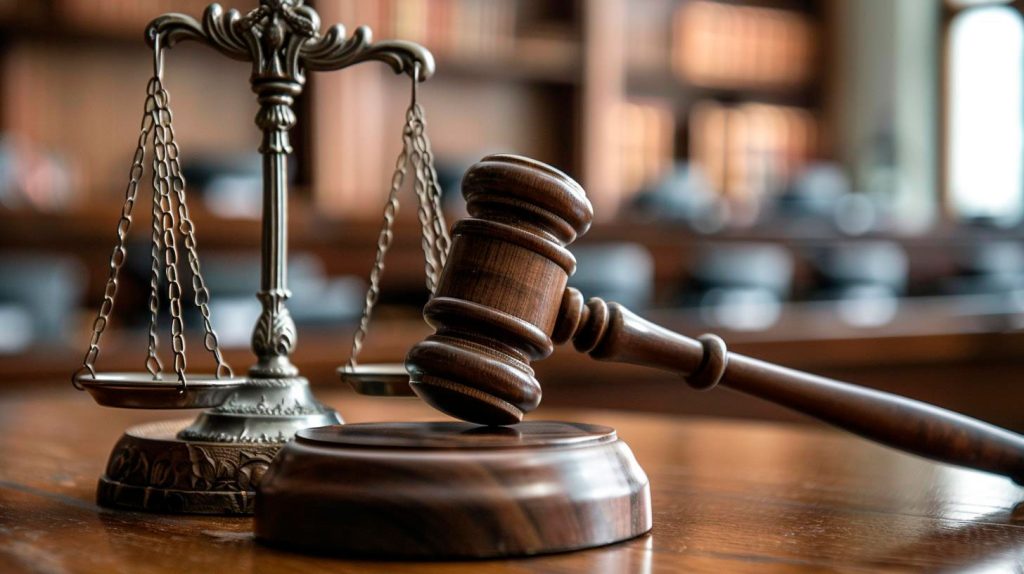
Utilizing Legal Aid for Credit Repair: Steps to Take
Here are some steps to take when utilizing legal aid for credit repair.
1. Consultation with a Credit Repair Lawyer
The first step in utilizing legal aid for credit repair is to schedule a consultation with a credit repair lawyer. During this initial meeting, the lawyer will review your credit report, assess your financial situation, and discuss your credit repair goals. The lawyer will then create a personalized plan to help you improve your credit score.
According to a survey conducted by the Federal Trade Commission, approximately 20% of consumers have errors on their credit reports that could impact their scores. A credit repair lawyer can help you identify and dispute any inaccuracies on your credit report, ultimately improving your credit score.
2. Developing a Credit Repair Strategy
Once you have consulted with a credit repair lawyer, the next step is to develop a credit repair strategy. This strategy may involve disputing inaccuracies on your credit report, negotiating with creditors to settle debts, and creating a budget to improve your financial situation.
Research shows that individuals who work with credit repair professionals see an average increase of 40 points in their credit scores within the first four months. By following a customized credit repair strategy developed by a legal professional, you can take proactive steps towards improving your credit score.
3. Monitoring and Maintaining Your Credit
After implementing a credit repair strategy, it is important to monitor and maintain your credit score. Your credit repair lawyer can help you understand the factors that impact your credit score, such as payment history, credit utilization, and length of credit history.
Studies have shown that individuals who actively monitor their credit scores are more likely to see improvements in their overall credit health. By staying informed about your credit score and making responsible financial decisions, you can continue to build a positive credit profile.
4. Legal Protection and Representation
One of the key benefits of utilizing legal aid for credit repair is the legal protection and representation you receive. Credit repair lawyers are well-versed in consumer protection laws and can advocate on your behalf with creditors and credit bureaus.
In a study conducted by the Consumer Financial Protection Bureau, it was found that consumers who hired legal representation for credit repair were more likely to see errors corrected on their credit reports. By having a legal professional on your side, you can ensure that your rights are protected throughout the credit repair process.
Improving your credit score can have a significant impact on your financial well-being. By utilizing legal aid for credit repair, you can take proactive steps towards repairing your credit and achieving your financial goals. From consulting with a credit repair lawyer to developing a personalized credit repair strategy, legal aid can provide you with the guidance and support you need to improve your credit score.
Remember, the key to successful credit repair is patience and persistence. By working with a credit repair lawyer and staying committed to your credit repair goals, you can improve your credit score and take control of your financial future.
Common Credit Issues That Legal Aid Can Help Resolve
In this article, we will discuss some of the most common credit problems that legal aid can assist with.
1. Credit Report Errors
One of the most common credit issues that individuals face is errors on their credit reports. These errors can range from incorrect personal information to inaccurate account details and payment histories. These errors can have a significant impact on an individual’s credit score and ability to obtain credit. Legal aid services can help individuals dispute these errors with credit bureaus and creditors to have them corrected.
2. Debt Collection Harassment
Dealing with debt collectors can be a stressful and overwhelming experience. Many debt collectors use aggressive tactics to try to collect on debts, which can violate consumer protection laws. Legal aid services can help individuals understand their rights under the Fair Debt Collection Practices Act and stop debt collectors from harassing them. They can also help negotiate with debt collectors to create manageable repayment plans.
3. Identity Theft
Identity theft is a serious crime that can damage an individual’s credit and financial standing. When someone steals an individual’s personal information and uses it to open fraudulent accounts or make unauthorized purchases, it can wreak havoc on their credit report. Legal aid services can assist victims of identity theft in resolving these issues and restoring their credit.
4. Bankruptcy
Filing for bankruptcy can be a last resort for individuals who are overwhelmed by debt and unable to repay their creditors. While bankruptcy can provide a fresh start, it can also have a negative impact on an individual’s credit report. Legal aid services can help individuals understand their options when it comes to bankruptcy and navigate the complex legal process. They can also provide guidance on how to rebuild credit after bankruptcy.
5. Credit Counseling
Many individuals struggle with managing their finances and may benefit from credit counseling services. Legal aid organizations often offer credit counseling programs that can help individuals create budgets, reduce debt, and improve their credit scores. These programs can provide valuable information and resources to help individuals take control of their financial lives.
Legal aid services play a crucial role in helping individuals resolve common credit issues and improve their financial well-being. Whether it’s correcting credit report errors, dealing with debt collectors, addressing identity theft, navigating bankruptcy, or seeking credit counseling, legal aid organizations can provide valuable assistance and support. By taking advantage of these services, individuals can take control of their finances and work towards a brighter financial future.













Legal aid services often include legal professionals who can guide you through the credit repair process without you needing to hire a private attorney.
There’s no catch. Legal aid services are funded by the government and nonprofit organizations to help those in need.
If you’re struggling with credit issues, legal aid might be just what you need to get back on track.
Legal aid is the bomb! They helped me get my credit score up after it went way down.
Legal aid is the real MVP when it comes to repairing credit. Don’t sleep on their services!
Legal aid is key in helping you understand your rights when it comes to credit repair.
Yes, legal aid can help you dispute inaccurate information on your credit report.
I didn’t know legal aid could do so much for my credit. I thought they just dealt with criminal stuff.
Legal aid ain’t just for criminals. They can also help regular folks like us with credit problems.
Legal aid sounds complicated. Do I need a lawyer to help me with my credit?
Legal aid can be a lifesaver when it comes to fixing credit problems that have been holding you back.
Legal aid helped me when I was in a tight spot with my credit. They know their stuff!
Yo, legal aid is clutch when it comes to fixing credit issues. They know all the laws and stuff.
Hey, can legal aid really remove negative marks from my credit report?
Legal aid is typically provided at low or no cost to those who qualify based on income.
Legal aid can be a game-changer for your credit. They helped me dispute errors on my report.
Yo, I heard legal aid can help me negotiate with creditors. Is that true?
Legal aid sounds too good to be true. What’s the catch?
Yes, legal aid can negotiate with creditors on your behalf to help resolve outstanding debts and improve your credit.
Legal aid services cover a wide range of legal issues, including consumer rights and credit repair.
Wait, so legal aid is free? Like, I don’t have to pay anything?